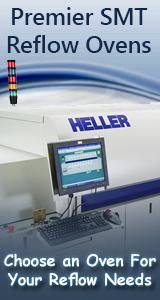Motorola president Robert Growney last week broke with a longstanding commitment to the Semiconductor Products Sector (SPS), saying that the company will consider selling the unit if it is unable to return to profitability within an undisclosed time.
To some observers, Growney's vagueness, as well as current market conditions, make an imminent sale or spin-off of SPS more of a hollow threat than a looming reality. In a symbolic sense, Growney's comments, made during a meeting of a select group of analysts at the company's headquarters in Schaumburg, Ill., were important because they sent the message that �there are no longer any sacred cows� within Motorola, said Dan Scovel, an analyst at Needham and Co. Inc., New York.
�From a practical standpoint, if the semiconductor industry improves over the next three quarters, SPS' performance is also likely to improve, and Motorola will not have to face the potential of following through� on the sale, Scovel said. �The company has been adamant in the past about what they felt was the importance and value that the chip business brought to the rest of the company.
�I think [Growney's statement] helps make their case about how serious they are about making fixes,� he said.
Others said the fact that Motorola even publicly broached the subject of an SPS divestiture indicates a fundamental shift in philosophy that could yet see the chip unit cut loose.
�For years and years, Motorola has sworn on a stack of Bibles that there is no way [it would divest SPS],� said Will Strauss, an analyst at Forward Concepts Co., Tempe, Ariz. �I think the semiconductor sector will be spun off. It may not be this year, or next year, it may be five years from now, but it will happen.�
Spinoffs lose momentum
Motorola and IBM Corp. are the only two major vertically integrated OEMs remaining in the United States, after a decade in which spinning out individual operations became common practice. In the past year, however, such moves have proved difficult or impossible to execute.
Lucent Technologies Inc.'s spinoff of Agere Systems Inc., for example, has been plagued with problems, while Conexant Systems Inc. has put an indefinite hold on its plans to spin out its Mindspeed Technologies operation.
Scott Searle, an analyst at S.G. Cowen Securities Corp., New York, believes Motorola is serious about the potential sale of SPS, but said there is little chance the move could be made under existing market conditions.
�Back when the market got caught up in all the Internet hype, [spinoffs] were seen as a great way to unlock shareholder value, and there were pure plays created all over the place,� Searle said. �I'm not sure that scenario is valid anymore. The [Growney] statement is related to Motorola's commitment to increasing shareholder value, whatever it takes, if they're unable to turn the semiconductor business around.�
SPS sees losses mount
A significant contributor to its parent company's poor fiscal performance, SPS has posted an operating loss of more than $500 million through the first six months of this year. In the second quarter alone, SPS recorded an operating loss of $381 million. The company so far has pared both its workforce and manufacturing base in an effort to control costs.
What's more, Motorola in the next year or two must decide whether to spend $2 billion to $3 billion to upgrade SPS' production lines to accommodate 300mm wafers if it hopes to maintain the division as a world-class manufacturing presence. Ultimately, the company might determine that such a huge capital infusion would be more wisely directed to its OEM business, Strauss said.
Shlapak's efforts
Though market conditions have done it no favors, SPS has struggled under the direction of sector president Fred Shlapak, who took over the reins last September following a short stint by interim president Fred Tucker. Tucker followed Hector Ruiz, who left SPS for a post as president of Advanced Micro Devices Inc. in January of last year. Shlapak declined last week to discuss the potential sale of SPS.
�Shlapak inherited the sins of the past,� Strauss said. �He's done some pretty smart things, like trimming middle management, but ultimately he just took over at a very bad time.�
Earlier this year, SPS announced the latest in a string of restructuring and reorganization plans implemented over the past few years. In addition to merging two business units, SPS executives said they wanted to more clearly define the group's own identity.
Key to improving SPS' visibility has been its effort to establish itself as a player in the merchant IC business for cellular handsets. For the first time in its history, SPS was given corporate clearance to sell handset intellectual property, from design to software to chips, on a merchant basis. The company officially launched the effort in July.
As a separate entity, SPS would naturally be able to draw closer to handset OEM customers that may be reluctant to buy chips from a competitor's IC division. The release from the strictures of its parent might also enable the company to more clearly define its place in the market, Scovel said.
�You have to be fanatical in the semiconductor business,� he said. �Companies like Nvidia in graphics and Micron in DRAM, they don't wake up in the morning trying to second guess what they're attempting to accomplish. When you have a diversified company, you start asking yourself why you're in certain markets, and then you start looking at alternatives.
�Semiconductor at Motorola has not been visible for a while,� Scovel said. �Motorola doesn't trade with chip stocks. They're a cell phone company. Semiconductor has become progressively more invisible and smaller.�






